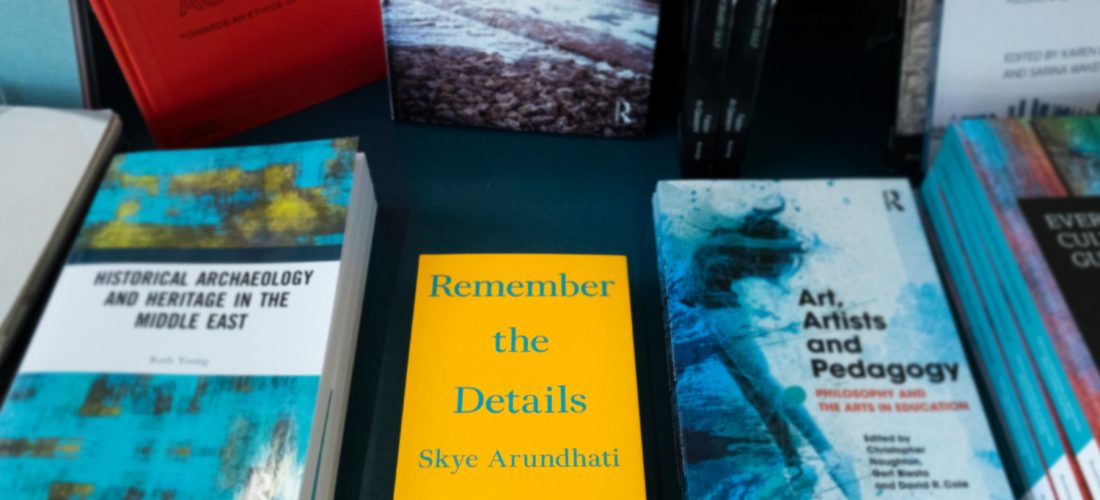In mid-December 2019, a nationwide protest movement bloomed across India in resistance against new and discriminatory citizenship laws. Months-long sit-ins, marches, and spontaneous gatherings carried on into early 2020.
In Remember the Details, published in November 2021, Goa-based writer Skye Arundhati Thomas reflects on the viral mobile phone images and videos that made their way into courtrooms and charge sheets. Thomas, in conversation with artist and ‘Private Ear’ Lawrence Abu Hamdan, delves deeper into the contents of her political reportage told through the story of images and their afterlife. Poets addressed crowds at twenty-four-hour sit-ins and occupations of public space. People shared snacks and held hours-long debates about the intention of words like “citizenship” and “democracy.” These peaceful protests were met with severe police brutality, and the clashes were deeply uneven. The police wore riot gear—flak jackets, combat boots, helmets, shields—and carried machine guns. Protestors were unarmed, sometimes holding only their phones.
In the wake of the state erasure of these events, the book asks what it means to remember, and how words and imagery inscribe reality into history.
Remember the Details is available in the Art Jameel Shop and for delivery globally.
About the author
Skye Arundhati Thomas is a writer based in Goa, India. Her writing has appeared in Artforum, the London Review of Books, Frieze, and ArtReview, among other places. She is an editor of The White Review.
About Lawrence Abu Hamdan
Lawrence Abu Hamdan is an artist and “private ear” whose projects have taken the form of audiovisual installations, videos, performances, photography, essays, and lectures. His interest with sound and its intersection with politics originate from his background as a touring musician and facilitator of DIY music. The artist’s audio investigation has been used as evidence at the UK Asylum and Immigration Tribunal and as advocacy for organisations such as Amnesty International and Defence for Children International together with fellow researchers from Forensic Architecture.
Abu Hamdan obtained his PhD in 2017 from Goldsmiths College University of London and has completed fellowships at the Gray Centre for Arts and Inquiry at the University of Chicago and the Vera List Centre for Art and Politics at the New School, New York.
